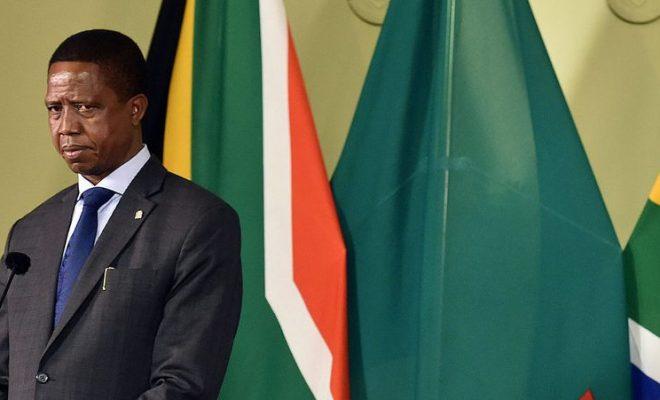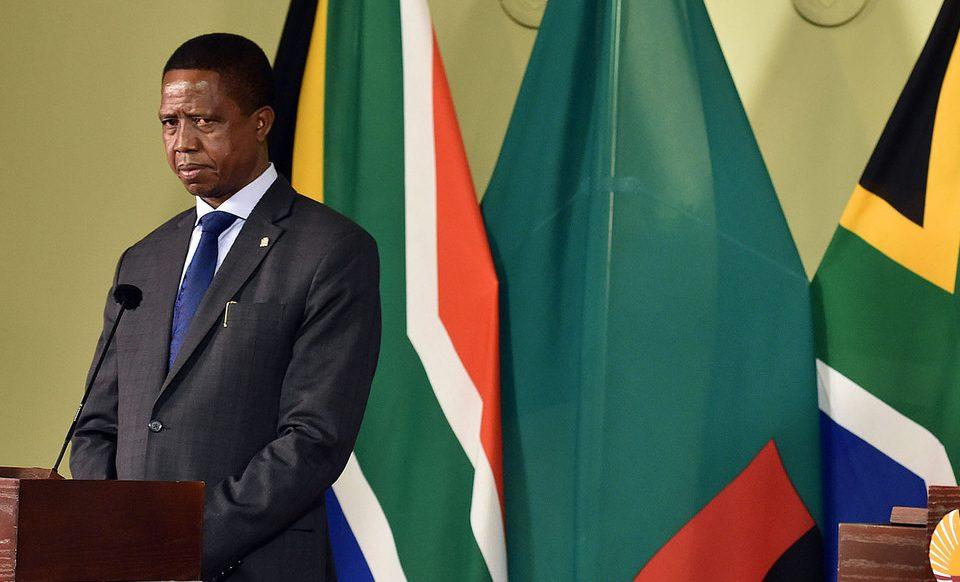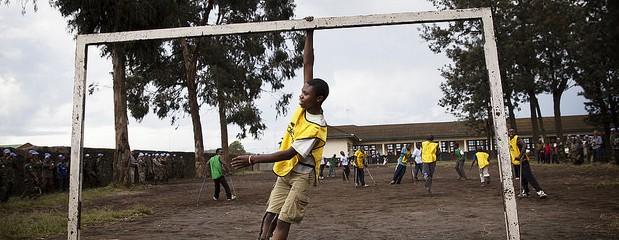Zambia: Lungu attacks law body but dictatorship remains out of reach

The well-respected Law Association of Zambia is the latest target of President Lungu’s increasing authoritarianism. Where is this heading?

Zambia President Edgar Lungu. Credit: GCIS.
On 5 July, Zambia’s President Edgar Lungu added to concerns over his increasing authoritarianism as he declared a threatened state of emergency. He claimed that a spate of suspicious fires targeting public buildings and a third of stalls of Lusaka City Market had been politically-motivated and said his move was necessary to “forestall chaos”. Parliament, which is controlled by the ruling Patriotic Front (PF), approved the measure for a period of 90 days.
Twelve days later, the Law Association of Zambia (LAZ) responded. In a press statement, the statutory legal body put forward a legal analysis of the president’s initiative, making three important observations.
Firstly, LAZ explained that Lungu had acted within the bounds of the Constitution. It noted that Article 31 gives the president the right to declare a threatened state of emergency if he/she believes the country is headed towards an actual state of emergency. The association did, however, question the timing of Lungu’s move given that the fires were still subject to police investigations.
Secondly, LAZ noted that in a threatened state of emergency, the provisions contained in the Bill of Rights are still operational. It explained that it is only under an actual state of emergency that those legal and civil rights can be suspended. This point was likely an indirect warning to Lungu following his previous threats to “suspend human rights” and his request to Zambians to tolerate him “if I become a dictator for once”.
Thirdly, the law association pointed out that the Constitution precludes any extension to the threatened state of emergency beyond the three months approved by Parliament.
LAZ concluded by saying that if the government derogates from the Constitution, it would consider taking legal action.
If these arguments appeared reasonable to many people, Lungu did not concur. Responding to LAZ’s comments the next day, the president strongly dismissed the association’s comments as politically-motivated.
“If the lawyers want to form a political party, let them go ahead,” he said. “Let them not abuse the profession because what they are saying is politics.”
A legal thorn
Today, LAZ is one of Zambia’s few influential civil society organisations not to have succumbed to co-option or coercion. Established in 1973, the highly-regarded association has been a thorn in the side of successive governments.
In 2001, for instance, LAZ was a key part of a broad coalition of civic organisations that successfully opposed former president Frederick Chiluba’s attempts to amend the constitution to seek a third term. In the run-up to the 2016 elections, the association successfully petitioned the Constitutional Court to invalidate Lungu’s decision to retain his cabinet after the dissolution of parliament. Meanwhile, LAZ is also part of the ongoing legal challenge against Lungu’s attempt to seek another presidential term in 2021.
For these reasons and its history, the president probably sees the association as a barrier against his ambitions. In a bid to nullify this check on power, PF associates previously attempted, without success, to oust LAZ’s executive. Ruling elites have also indicated that they plan to repeal the statute that established the statutory association.
In the meantime, however, the strategy seems to be to undermine the body and discredit its reputation in the court of public opinion.
Lungu silences dissent
Lungu’s statement last month calling LAZ’s analysis politically-motivated suggests that, according to his thinking, all politics is party politics. In his view, only parties are entitled to political opinions, and citizens and civil society have no democratic role to play beyond voting for or supporting them.
This of course contradicts both Zambia’s constitution and the basic workings of democracy. Dismissing LAZ in this way is indicative of the government’s inability to respond to criticism with argument and reason.
Lungu’s comments, however, should also be understood within the broader context of his crackdown on free speech and dissent. As a statutory body, LAZ is authorised to advise the government on staying within the law, and it would be in Lungu’s own interests to listen to it and other critics. Their views can help him and even save him from embarrassment, especially since serious legal transgressions could leave him open to impeachment.
Yet according to his rhetoric, anyone who criticises the government is a subversive element bent on destabilising the country. Particularly since his re-election in 2016, this thinking has led him to clamp down on the critical press and opposition. His government orchestrated the closure of The Post, the country’s leading private newspaper. It has suppressed dissent, leading many citizens and organisations to self-censor. Meanwhile, the main opposition leader Hakainde Hichilema is languishing in prison as he awaits trial on charges of treason.
[Zambia’s authoritarianism deepens, emboldened by IMF support]
Lungu and the PF have also embarked on a propaganda campaign aimed at poisoning the public into believing that any criticism of their actions is the work of disgruntled citizens who “do not have the interest of the nation at heart”. The strategy is to discredit alternative sources of power. In relation to LAZ, a professional association of lawyers with considerable public respect, the objective of Lungu’s criticism is to question its impartiality and blur the distinction between the body’s mandate and party political concerns.
A classic strategy of authoritarian regimes is to cultivate an environment in which citizens are ignorant of their rights and do not exercise them. In this regard, LAZ’s unforgivable sin was to empower citizens with knowledge of the law and the limits of presidential power.
Is Zambia heading towards dictatorship?
President Lungu has previously vowed to fall like a tonne of bricks on his opponents. Since his re-election in 2016, he has gone about silencing the free press, opposition parties and rivals within the PF. His outburst against LAZ is just another indication of his dictatorial thinking and a further example of his “humble and democratic” veil slipping.
[Zambia: Lungu’s authoritarianism now turns to opponents within]
[Humble, mother-loving and God-fearing? How Edgar Lungu won Zambia’s presidential election]
Will this all end in dictatorship? I think not, for while Lungu and the PF are undoubtedly becoming increasingly authoritarian, they lack the political capital and strategic tools necessary to justify, manage and sustain such a regime.
To begin with, Lungu lacks the broad popularity and legitimacy needed to establish a dictatorship. According to the contested 2016 results, he beat Hichilema by less than 3%. In office, he has failed to put in place popular policies that would win him greater support. Moreover, with the country severely in debt and an anticipated IMF bailout on the way, public spending is likely to be slashed further, hurting the poor.
To establish a dictatorship, one needs to manufacture tacit consent. In the Zambian context, this would require a significant redistributive agenda, but the regime lacks the resources for this. Lungu does not seem inclined to pursue the extractive industry for more revenue as the likes of Tanzania are attempting to do. Meanwhile, his cohort is opportunistically selling the little state resources that remain.
[Tanzania: Magufuli’s mining reforms are a masterclass in political manoeuvring]
Lungu also lacks the kind of charisma, oratory power, or “saviour” credentials that his autocratic mentors – such as Zimbabwe’s Robert Mugabe, Uganda’s Yoweri Museveni or Rwanda’s Paul Kagame – can more easily fall back on.
Lungu’s actions and attacks on bodies such as LAZ will certainly undermine Zambia’s cherished democracy, its political institutions and culture. Furthermore, like the other leaders emerging in his mould around the world – such as Donald Trump in the US and Recep Erdogan in Turkey – he is likely to leave havoc in his wake.
In the US and elsewhere, broad sections of civil society have mobilised against actions they see as illegitimate or illegal. But in Zambia, years of a diminished relationship between the state and its citizens makes this brew slower. This is what makes institutions like LAZ all the more important to stem the slide – not so much towards dictatorship but chaos.






comrades colonialists instilled selfishness is destroying Buntu people of Africa plus leaders as in case of Zambia are pretending to be blind to facts. We know there must be order for a nation upgrade its living conditions but our leaders should identify plus acknowledge that what is workable plus good for some other ethnic groups may not be good for Buntu. Oppression plus should be met with organized citizen response capable of developing to what it need be to correct unduly foolish plus oppressive acts of incompetent or/plus selfish African leaders. Very much sincere, Henry Price Jr. aka Obediah Buntu Il-Khan aka Kankan. [email protected]
The author of this article sounds like a politician. Can you please try to be balanced when writing some of these articles.
Zandie, is it that hard to engage the article, not the author?